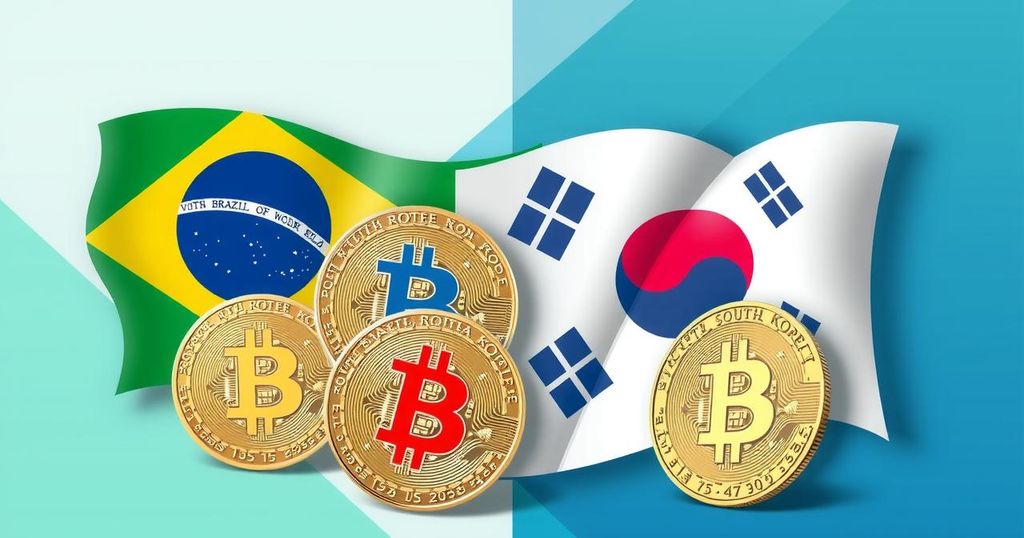Brazil and South Korea’s Divergent Stances on Bitcoin: Regulation vs. Rejection
Brazil is proposing a bill to regulate the payment of salaries in Bitcoin, while South Korea’s central bank is refusing to include Bitcoin in its foreign reserves due to concerns over its volatility. Brazil’s initiative could bolster its fintech sector, whereas South Korea remains skeptical of Bitcoin’s stability and transaction costs.
Bitcoin presents a significant divide among nations, as Brazil moves to regulate salary payments in cryptocurrency while South Korea’s central bank opts against including Bitcoin in its foreign exchange reserves due to its volatility. Brazilian Federal Deputy Luiz Philippe de Orleans e Bragança has introduced legislation permitting employees to receive up to 50% of their salary in Bitcoin, aiming to enhance Brazil’s financial technology sector and attract crypto investments. This proposal is inspired by similar measures in countries like Japan, Switzerland, and Portugal, where crypto salaries are increasingly normalized.
In stark contrast, South Korea’s Bank of Korea (BOK) has firmly rejected the inclusion of Bitcoin in its foreign exchange reserves, as reported by Korea Economic Daily. The central bank expressed concerns regarding Bitcoin’s significant price fluctuations, which hinder its ability to conform to the International Monetary Fund’s (IMF) standards for liquidity, market stability, and credit risk management.
This divergent approach illustrates the differing perceptions of Bitcoin’s role in the global economy. Brazil views Bitcoin as a modernization tool for payroll systems, whereas South Korea remains cautious, citing potential inflated transaction costs associated with Bitcoin’s volatility. Despite these differing attitudes, Bitcoin’s presence and adoption across various global financial sectors continue to grow, sparking debate about its legitimacy as a financial asset.
Should Brazil’s proposed bill receive approval, it could pave the way for more businesses to adopt crypto payments for their employees, contrasting with South Korea’s current reluctance and skepticism. As Bitcoin’s value hovers at $82,645, the future trajectory of cryptocurrency in international finance remains uncertain and contested.
This article highlights the contrasting attitudes towards Bitcoin between Brazil and South Korea. Brazil aims to adopt Bitcoin in salary payments to boost its fintech sector, while South Korea’s central bank dismisses Bitcoin as a viable reserve asset due to its inherent volatility. This division among nations raises essential questions about the legitimacy and future role of Bitcoin in the global financial landscape.
Original Source: markets.businessinsider.com




Post Comment